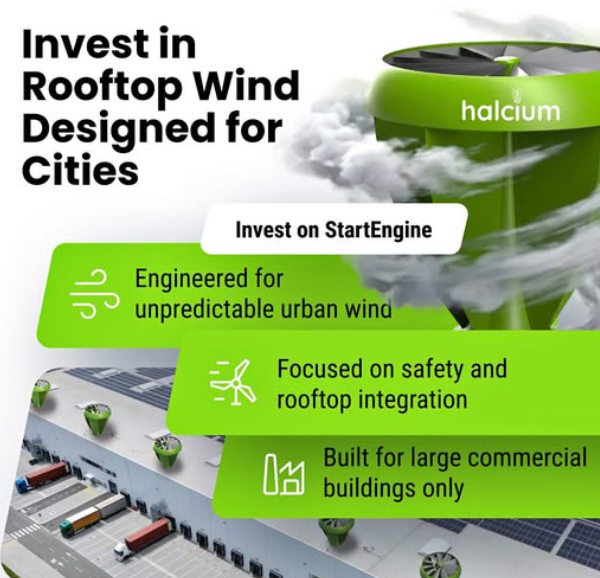Sustainable Aviation Fuel
Definition of Bio Avtur
Bio-Avtur, also known as sustainable aviation fuel (SAF), refers to a renewable and environmentally friendly alternative to traditional aviation turbine fuel (Avtur).
It is specifically designed to power aircraft engines while reducing carbon emissions and minimizing the overall environmental impact of air travel.
Bio-Avtur is produced from various sustainable biomass sources, such as plant oils, animal fats, waste oils, and agricultural residues. These feedstocks undergo a refining process to convert them into a liquid fuel that meets the specifications and performance requirements of jet engines. The production of bio-Avtur aims to reduce the aviation sector’s reliance on fossil fuels and mitigate its contribution to greenhouse gas emissions.
The key characteristics and benefits of bio-Avtur
Carbon Reduction
Bio-Avtur offers significant carbon emissions reductions compared to conventional Avtur. It has a lower lifecycle carbon footprint due to the absorption of carbon dioxide (CO2) by the biomass feedstocks during their growth phase.
Compatibility with Existing Infrastructure
Bio-Avtur can be seamlessly blended with conventional jet fuel and used in existing aircraft and refueling infrastructure without requiring any modifications. This compatibility enables a smooth transition to the use of sustainable aviation fuel.
Renewable and Sustainable
The feedstocks used in bio-Avtur production are renewable resources, which can be replenished over time. By utilizing waste materials and agricultural byproducts, bio-Avtur production contributes to the circular economy and reduces reliance on non-renewable resources.
Improved Air Quality
Bio-Avtur has the potential to reduce the emission of pollutants, such as sulfur oxides (SOx) and particulate matter, resulting in improved air quality around airports and in regions impacted by aviation activities.
Energy Security
The production and use of bio-Avtur contribute to enhancing energy security by diversifying fuel sources and reducing dependence on fossil fuels, which are subject to price volatility and geopolitical uncertainties.
It is important to note that the sustainable production of bio-Avtur should adhere to strict environmental and social sustainability criteria. These criteria include responsible feedstock sourcing, protection of ecosystems and biodiversity, avoidance of negative impacts on food production, and consideration of social and economic factors in the production process.
As the aviation industry strives to achieve its sustainability goals, the development and widespread adoption of bio-Avtur play a crucial role in reducing the environmental impact of air travel and advancing the transition towards a more sustainable and carbon-neutral aviation sector.
The Top 10 Bio-Avtur Production Countries:
Here is list of The Top 10 Bio-Avtur Production Countries:
As the aviation industry seeks to reduce its carbon footprint and mitigate the environmental impact of air travel, the development and production of sustainable aviation fuel (SAF) have gained significant momentum. Bio-Avtur, a renewable alternative to traditional jet fuel, offers a promising solution in decarbonizing the aviation sector. In this article, we explore the top 10 bio-Avtur production countries, highlighting their efforts in advancing sustainable aviation fuel and contributing to a greener future for air travel.
United States
The United States takes the lead in bio-Avtur production, driven by its commitment to reducing greenhouse gas emissions from the aviation sector. The country has established a robust biofuel industry, leveraging diverse feedstocks and advanced conversion technologies. Through government initiatives, partnerships with airlines, and research and development investments, the U.S. is accelerating the adoption of bio-Avtur, fostering a more sustainable aviation industry.
Brazil:
Brazil stands as a global leader in bio-Avtur production, capitalizing on its abundant biofuel feedstock resources, particularly sugarcane and its byproducts. The country’s well-established ethanol industry provides a solid foundation for bio-Avtur production, offering a renewable and low-carbon alternative to conventional jet fuel. Brazil’s commitment to sustainable aviation is reflected in its initiatives to expand bio-Avtur production and promote its use in domestic and international flights.
France:
France has emerged as a prominent player in bio-Avtur production, focusing on the development of sustainable aviation fuels derived from various feedstocks. The country’s robust agricultural sector and advanced refining capabilities contribute to the production of bio-Avtur with reduced lifecycle greenhouse gas emissions. France’s commitment to decarbonizing the aviation industry and its support for research and development initiatives propel its bio-Avtur production efforts.
Germany:
Germany has made significant strides in bio-Avtur production, emphasizing the use of innovative technologies and sustainable feedstocks. The country’s commitment to renewable energy and decarbonization extends to the aviation sector, where bio-Avtur plays a crucial role in reducing carbon emissions. Germany’s efforts in developing advanced conversion processes and fostering collaborations with airlines are driving its bio-Avtur production forward.
Australia:
Australia has established itself as a leading bio-Avtur producer, capitalizing on its vast land resources and diverse feedstock options. The country’s focus on advanced biofuel technologies, such as the use of algae and waste-derived feedstocks, sets the stage for sustainable aviation fuel production. Australia’s commitment to reducing emissions in the aviation sector and fostering collaboration between industry stakeholders positions it as a significant player in bio-Avtur production.
Finland:
Finland has made remarkable progress in bio-Avtur production, leveraging its strong forestry industry and research capabilities. The country’s emphasis on utilizing sustainable biomass feedstocks, such as forest residues, contributes to the production of low-carbon aviation fuel. Finland’s commitment to sustainable aviation and its investment in research and development projects further strengthen its bio-Avtur production capacity.
Sweden:
Sweden stands out as a leading bio-Avtur producer, driven by its ambitious climate goals and focus on sustainable aviation solutions. The country’s advanced biofuel industry, with a specific emphasis on forest-based feedstocks, paves the way for the production of bio-Avtur with reduced environmental impact. Sweden’s commitment to sustainable aviation fuels and its supportive policy framework enable the growth of bio-Avtur production.
Netherlands:
The Netherlands has been actively pursuing bio-Avtur production, aiming to reduce carbon emissions in its aviation sector. The country’s strategic location, advanced refining infrastructure, and commitment to sustainable energy solutions foster the production of bio-Avtur. The Netherlands has implemented supportive policies and collaborations with airlines to drive the adoption of bio-Avtur. With its focus on sustainable aviation and investment in research and development, the Netherlands is making significant strides in bio-Avtur production.
Canada:
Canada is a key player in bio-Avtur production, leveraging its vast biomass resources and technological expertise. The country’s commitment to sustainable aviation fuels and reducing emissions aligns with its broader clean energy objectives. Canada’s investments in bio-Avtur production facilities, collaborations with industry stakeholders, and supportive policies contribute to its growing bio-Avtur industry.
Norway:
Norway has emerged as a leader in sustainable aviation fuels, including bio-Avtur, driven by its ambitious climate goals and dedication to decarbonizing the aviation sector. The country’s strong bioenergy industry, focus on advanced technologies, and support for renewable feedstocks enable the production of bio-Avtur with significantly lower carbon emissions. Norway’s commitment to sustainable aviation and its initiatives to promote bio-Avtur adoption make it a prominent bio-Avtur production country.
Fact and data of Bio Avtur Production
The production and adoption of bio-Avtur or sustainable aviation fuel (SAF) have been steadily increasing. However, specific data and statistics regarding recent bio-Avtur production may vary as it is an evolving field. Nonetheless, here are some facts and data related to bio-Avtur production:
Global Bio-Avtur Production
According to the International Energy Agency (IEA), the production of sustainable aviation fuel, including bio-Avtur, reached approximately 4.8 billion liters (1.27 billion gallons) in 2019. This represents a significant increase from previous years and indicates the growing interest in sustainable alternatives for aviation.
Feedstock Diversity
Bio-Avtur can be produced from a variety of sustainable feedstocks, including plant oils (such as camelina, soybean, and algae), animal fats, used cooking oil, and waste biomass. The choice of feedstock depends on factors such as availability, sustainability, and technological feasibility.
Advanced Conversion Technologies
Advanced technologies, such as hydroprocessing, esterification, and gasification, are used in the conversion of biomass feedstocks into sustainable aviation fuel. These technologies help ensure the quality and performance of the final product, making it suitable for use in aircraft engines.
Blending Ratios
Bio-Avtur is commonly blended with conventional jet fuel to create a blend known as drop-in fuel. The blending ratios can vary, with typical blends ranging from 5% to 50% bio-Avtur and the remainder being conventional jet fuel. Higher blending ratios require careful consideration of engine compatibility and fuel certification.
Regional Initiatives
Various regions and countries have implemented policies and initiatives to promote bio-Avtur production and adoption. For example, the European Union’s Renewable Energy Directive II sets a target for a 2% share of advanced aviation fuels, including bio-Avtur, by 2025. Similarly, the United States has implemented the Renewable Fuel Standard (RFS) program, which includes specific provisions for bio-Avtur production and use.
Collaborations and Investments
The aviation industry, fuel producers, and governments have been actively collaborating and investing in bio-Avtur production projects. This includes partnerships between airlines and biofuel producers, research and development initiatives, and investments in bio-Avtur production facilities.
Demonstrations and Commercial Flights:
Several airlines have conducted successful demonstration flights using bio-Avtur and have incorporated sustainable aviation fuel into their operations. These flights demonstrate the technical feasibility and performance of bio-Avtur in commercial aircraft.
Certification and Standards
Various certification schemes and standards ensure the sustainability and quality of bio-Avtur. For example, the Roundtable on Sustainable Biomaterials (RSB) and International Sustainability and Carbon Certification (ISCC) provide certification programs for sustainable aviation fuels, including bio-Avtur.
It is important to note that the bio-Avtur industry is continuously evolving, and recent data and developments may have emerged since my knowledge cutoff. The advancement of bio-Avtur production depends on factors such as policy support, technological advancements, feedstock availability, and the willingness of stakeholders to invest in sustainable aviation solutions.
Conclusion Top 10 Bio-Avtur Production Countries:
The top 10 bio-Avtur production countries showcased in this article demonstrate the global efforts in developing sustainable aviation fuels and decarbonizing the aviation industry.
These countries are at the forefront of bio-Avtur production, leveraging their abundant biomass resources, advanced technologies, and supportive policies to drive the transition towards greener air travel.
Bio-Avtur offers a promising solution in reducing the carbon footprint of aviation, mitigating climate change, and promoting sustainability in the industry. As these top bio-Avtur production countries continue to expand their capacities, invest in research and development, and collaborate with airlines and industry stakeholders, they pave the way for a more sustainable future of aviation.
It is worth noting that bio-Avtur production should be approached with careful consideration of sustainability, including feedstock sourcing, land use, and social and environmental impacts. The focus should be on producing bio-Avtur from renewable and low-carbon feedstocks, ensuring that the entire lifecycle of the fuel aligns with sustainability goals.
https://www.exaputra.com/2023/05/the-top-10-bio-avtur-production.html
Renewable Energy
Rooftop Wind
 My doctor, who knows that I understand physics and renewable energy in particular, asked me today what I thought about wind turbines on boats.
My doctor, who knows that I understand physics and renewable energy in particular, asked me today what I thought about wind turbines on boats.
I explained that, since boats need their own ways to generate electricity, what is called “small wind” may make sense. Most ships have diesel-powered generators, and that’s an option for smaller craft as well, and solar is not an attractive option because of the small area.
Doctors generally don’t have time to kill, but he asked me further about small wind, to which I explained:
Because the area of a circle is proportional to the square of the radius, big is better. If you can build a turbine with a radius 100 times larger than a small one, you’re going to generate 10,000 time more power.
Because the power generated by a turbine is proportional to the cube of the wind’s velocity, if you can site a turbine in wind conditions that are 10 times those on your rooftop, with trees and other buildings slowing the wind down, you’re going to generate 1000 times more power.
So, as usual, the answer resides in physics and math. 1000 times 10,000 is 10 million, which is why we see huge turbines on structures that lift huge turbines high above the ground, and it’s why the small wind industry has essentially disappeared.
If you don’t understand elementary school math and high school science, and you have money to burn, the investment offered at left may be right for you.
Renewable Energy
Fox News and its Effects on American Civilization
 It’s interesting that there is no Fox News (or equivalent) in Canada.
It’s interesting that there is no Fox News (or equivalent) in Canada.
The Canadians have protections of free speech that are very similar to ours in the States, and, like the U.S., these rights are not absolute. One difference is that Canada prohibits gross misrepresentation, which, in this case means that presenting opinions and calling it “news” is against the law. Lies are fine; calling them “news” is not.
A possible name for a show with the same content might be “Conservative Viewpoints” or “The Way the Right Wing Sees the World.”
Where Canada protects its people from malicious bullshit, in America we say, “Money talks.”
Renewable Energy
Apathy in the Midst of Treason
 Former Labor Secretary Robert Reich makes an excellent point at left.
Former Labor Secretary Robert Reich makes an excellent point at left.
The constant onslaught of distractions coming out of Trump’s mouth is calculated make us give up striving for truth, honesty, and environmental responsibility.
We mustn’t quit.
-
Greenhouse Gases7 months ago
Guest post: Why China is still building new coal – and when it might stop
-
Climate Change7 months ago
Guest post: Why China is still building new coal – and when it might stop
-

 Greenhouse Gases2 years ago
Greenhouse Gases2 years ago嘉宾来稿:满足中国增长的用电需求 光伏加储能“比新建煤电更实惠”
-
Climate Change2 years ago
Bill Discounting Climate Change in Florida’s Energy Policy Awaits DeSantis’ Approval
-
Climate Change2 years ago
Spanish-language misinformation on renewable energy spreads online, report shows
-

 Climate Change2 years ago
Climate Change2 years ago嘉宾来稿:满足中国增长的用电需求 光伏加储能“比新建煤电更实惠”
-
Climate Change Videos2 years ago
The toxic gas flares fuelling Nigeria’s climate change – BBC News
-

 Carbon Footprint2 years ago
Carbon Footprint2 years agoUS SEC’s Climate Disclosure Rules Spur Renewed Interest in Carbon Credits














